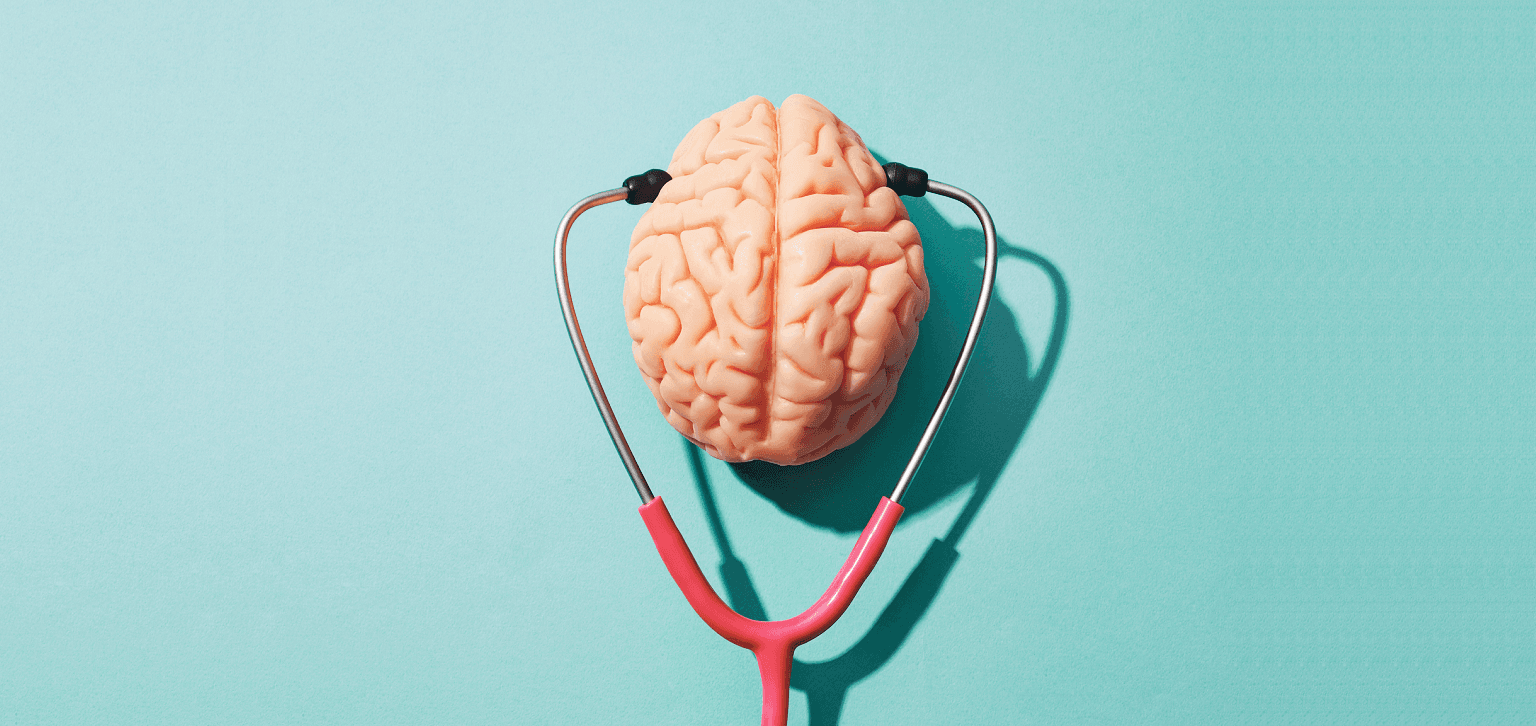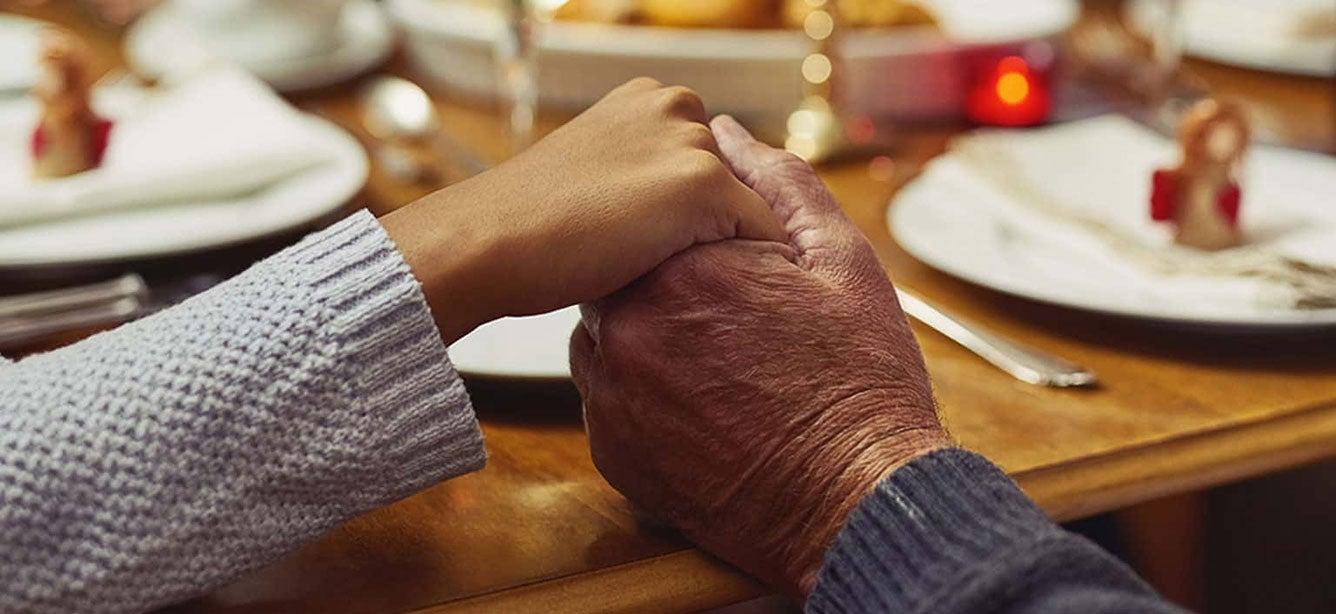
People often describe the holiday season as “the most wonderful time of the year” filled with family, friends, celebrations, traditions, and good cheer. For some, though, the holiday season can bring increased stress and worsen physical and mental health conditions.
Consider that:
- A 2023 American Psychological Association poll found 41% of adults reported that their stress level increases during the holiday season.
- Among people living with a mental health condition, 64% reported their conditions worsens around the holidays.2
During the holiday season, it is especially important to practice self-care and find ways to reduce stress when possible. Here are a few ideas, from practicing gratitude to helping others to writing your thoughts and feelings down in a journal.
9 self-care tips to support your mental well-being during the holidays
1. Practice gratitude
Research shows that those who practice gratitude not only reduce their stress levels but also feel less pain, get better sleep, have stronger immune systems, experience healthier relationships, and perform better professionally.3 Gratitude has also been shown to motivate people to make healthier food choices.3 Gratitude can be practiced in a variety of ways.
- Create a “gratitude jar”—When you feel gratitude, write that experience down on a piece of paper and place it in the jar. Each month, pull out a few experiences to read and maybe share with others.
- Start a gratitude journal—every day write down at least 1 thing you were grateful for that day. It could be as simple as a beautiful flower, someone who smiled at you, or even getting out of bed.
2. Acknowledge your feelings
Every feeling you experience is valid. Give yourself permission to feel each feeling. You may experience opposing feelings, like grief and joy, during the holiday and that is okay. Using an emotion checklist can help you better identify you’re feeling. You may find it helpful to write down your feelings in a journal or share them with someone you trust.
3. Learn to say “no”
It can be tempting to say “yes” to everything, especially at the holidays. If you say “yes” to something when you wanted to say “no” it can lead to feelings of resentment and being overwhelmed. Remember that “no” is a complete sentence and you do not have to explain your choice to other.
4. Be realistic
There are only 24-hours in a day. Make a list of all the events and obligations you have during the holiday season and prioritize them. Know that it is okay to decline an invitation or make a conscious choice to only participate in a certain number of holiday events during a given timeframe. For example, you may decide to only participate in 1 event each weekend.
5. Stick to healthy habits
In the hustle and bustle of the holiday season, it can be easy to forget about the basics. Healthy foods can boost our mood,4 sleep has been shown to maintain cognitive skills such as attention, learning, and memory as well as increasing positive emotions,5 and physical activity is associated with reduced anxiety, depression, and negative mood plus an increase in self-esteem and cognitive function.6 Here are some ways to make healthy habits a priority.
- Diet—Before attending a holiday gathering have a healthy snack. Fill your plate with fruits and vegetables, if possible use low fat and reduced sodium ingredients, enjoy small portions of higher calorie foods.7
- Sleep—The National Sleep Foundation recommends sticking to a sleep schedule where you go to bed and wake up at the same time every day, creating a sleep-friendly bedroom that is dark, quiet, and a comfortable temperature, exercising daily, and avoid food and drinks 2-3 hours before bed.
- Exercise—visit your local senior center and check out their physical activity offerings. Take a walk outside or have a dance party.
6. Get creative
Creativity comes in a variety of forms and the world is your oyster. Try coloring, painting or making a craft. Get creative with your holiday baking or try a new recipe. Write a poem or short story.
7. Give or serve others
Volunteering can increase life satisfaction and reduce symptoms of depression and anxiety. Respondents of The United Healthcare/Volunteer Match study reported higher levels of life satisfaction, a higher sense of control over life, and feeling physically and emotionally healthier. Older adults specifically reported a more positive attitude towards aging and higher control over their health. Find a service opportunity that best suit you, your values, and abilities. Volunteer at a local organization, send a card to someone, contribute to a charity, adopt a family, pet, or child, or make a meal or treat for someone.
8. Journal
Write one sentence every day describing your day. Or try writing for a set amount of time (5-10 minutes) in a free-flowing stream-of-consciousness style. Write without censoring your feelings or judgement. You may also find it helpful to write down three things you’re struggling with and one action step to relieve that concern.
9. Reach out
If you’re feeling isolated or alone reach out to your support network. If you or someone you love is experiencing a mental health crisis, call 988. You will be contacted to a trained crisis counselor who can provide free and confidential emotional support and connect you with local resources.
During the holidays, and throughout the year, give yourself grace as you navigate the joys and challenges of the holiday season. And remember the words of author L.R. Knost about self-care:
Taking care of yourself doesn’t mean ‘me first’, it means ‘me too’.”
Sources
1. American Psychological Association. Even a joyous holiday season can cause stress for most Americans. Nov. 30, 2023. Found on the internet at https://www.apa.org/news/press/releases/2023/11/holiday-season-stress
2. National Alliance on Mental Illness. Mental Health and the Holiday Blues. Nov. 19, 2014. Found on the internet at https://www.nami.org/press-releases/mental-health-and-the-holiday-blues/
3. American Psychological Association. Gratitude. Psychology Today. Found on the internet at https://www.psychologytoday.com/us/basics/gratitude
4. Bryan Robinson, PhD. Healthy Eating During The Holidays Improves Wellness And Productivity And Lengthens Life. Forbes. Nov. 11, 2023. Found on the internet at https://www.forbes.com/sites/bryanrobinson/2023/11/11/healthy-eating-during-the-holidays-improves-wellness-and-productivity-and-lengthens-life/
5. Columbia University Department of Psychiatry. How Sleep Deprivation Impacts Mental Health. March 16, 2022. Found on the internet at https://www.columbiapsychiatry.org/news/how-sleep-deprivation-affects-your-mental-health
6. Ashish Sharma, et al. Exercise for Mental Health. The Primary Care Companion to the Journal of Clinical Psychiatry. April 15, 2006. Found on the internet at https://www.psychiatrist.com/read-pdf/24919/
7. Centers for Disease Control and Prevention. How to Have Healthier Holidays in 1-2-3. Found on the internet at https://www.cdc.gov/healthy-weight-growth/about/healthier-holidays-in-1-2-3.html



